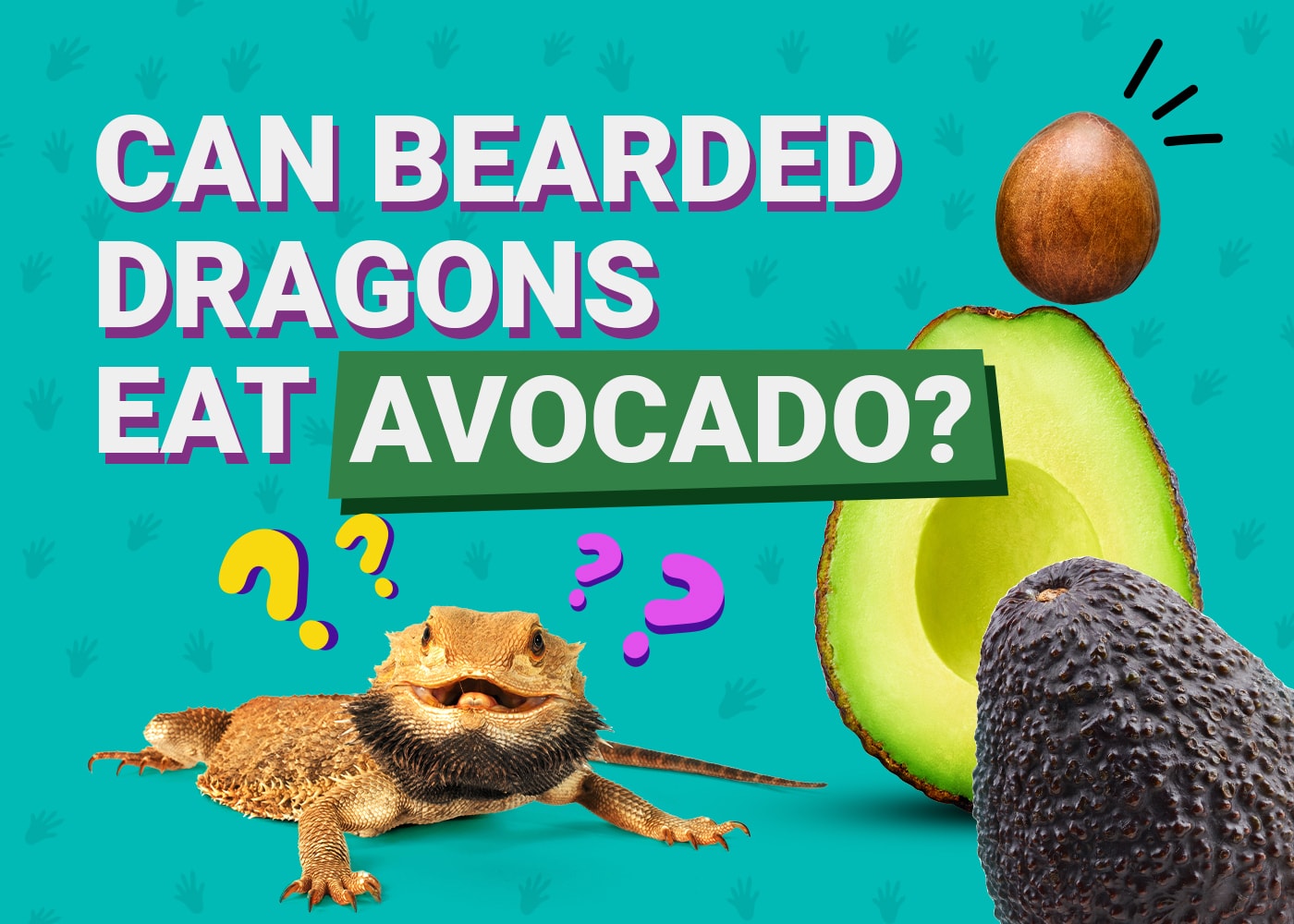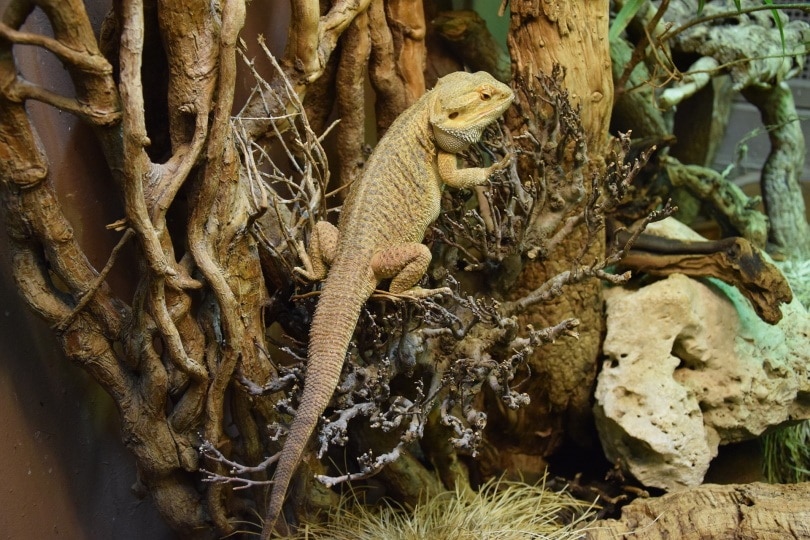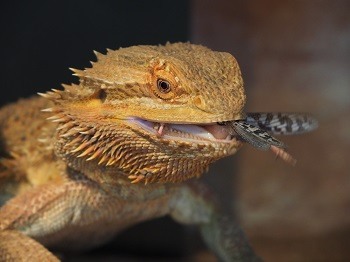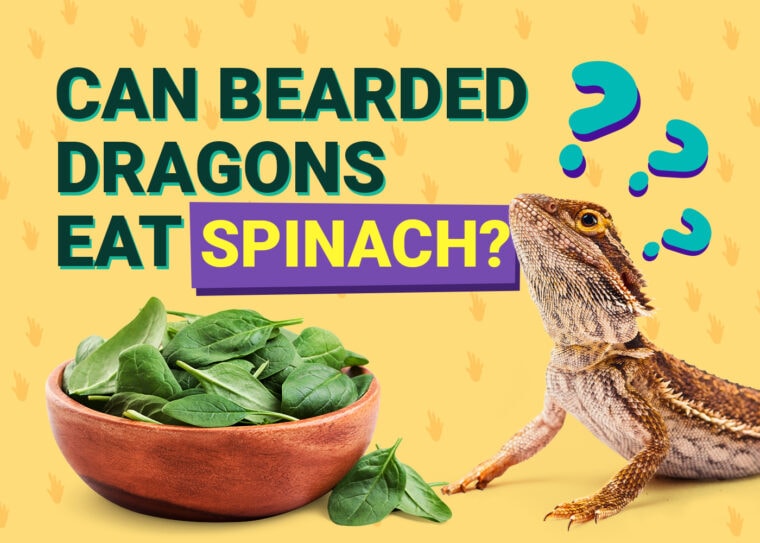
Bearded dragons are omnivores with fascinating diets. As newborns and juveniles, they require a large portion of animal-based protein in their diet. However, as adults, their diet is more plant-based. So, when you’re trying to compile a mental checklist of edible foods for your bearded dragon, you might wonder, “Can bearded dragons eat spinach?”
The answer is yes, bearded dragons can eat spinach but only in minimal quantities on occasion. Spinach can prevent calcium absorption, which can be harmful to your beardie if they overeat it. Spinach doesn’t have tons of nutritional value that they wouldn’t get elsewhere in their diet. Let’s discuss it in more detail.
Spinach Facts
Spinach is a leafy green plant native to Asia. It’s actually a flowering plant, but only the leaves are eaten. Spinach can come fresh, frozen, or canned, depending on how you like it1.
The nutritional analysis of spinach shows that they do contain useful nutrients for bearded dragons. However, they should still only be offered to your bearded dragon sparingly.

Risks Associated With Spinach
Making sure your bearded dragon has the right number of fresh fruits and veggies might be hard to measure at first, but you’ll get the hang of it. You may already know that leafy greens provide substantial nutritional benefits for your beloved pet, but what’s the deal with spinach specifically?
Spinach seems to have an excellent calcium-to-phosphorus ratio. However, the calcium in spinach mostly exists as calcium oxalate, which is indigestible; only ⅓ (33%) of spinach’s calcium can be utilized by bearded dragons, making it a weaker calcium source than most other leafy greens.
Calcium is an essential mineral in a beardie’s diet. If it isn’t processed the way that it should be, it can be detrimental to their overall health, causing more significant problems.
So, if you decide that your dragon needs spinach, just be careful of how much you give them. If you’re running low on beardie food, you might have other fresh foods in your fridge that would suit them better.
Safe Alternatives to Spinach
Other Greens to Avoid
These greens contain poor calcium-to-phosphorus ratios. Some of them also have high levels of oxalates and goitrogens. So, they interfere with both calcium absorption and iodine uptake, messing up thyroid function too.
Why Is Calcium Important for Bearded Dragons?
It might not seem like that big of a deal if spinach blocks a small amount of calcium—and you’re partially right. If you only feed one leaf of spinach to your bearded dragon, it won’t do them much harm. But doing so regularly over time can really impact their health.
When bearded dragons and other reptiles do not get the right amount of sun or UVB exposure, it can cause a vitamin D3 deficiency. In the absence or shortage of vitamin D3, calcium can’t be utilized the way that it should be.
An inability to properly utilize calcium is problematic because it also interferes with phosphorus metabolism. Phosphorus naturally binds to calcium, and if your bearded dragon cannot synthesize calcium properly, they will release excess calcium from their bones to bind with phosphorus in their body. This process, while natural, can weaken the bones over time if it repeats itself for a prolonged duration. This can eventually lead to metabolic bone disease.
Metabolic bone disease usually happens before the bearded dragon is 2 years old, but it can still occur beyond that.
Calcium Supplements
Bearded dragons require calcium supplements, which you can give them in dust form. Many people dip insects in calcium powder before feeding time. Calcium supplements paired with proper UV lighting are crucial for bearded dragons.
You can find calcium supplements in many major pet store chains and on reptile-friendly websites.
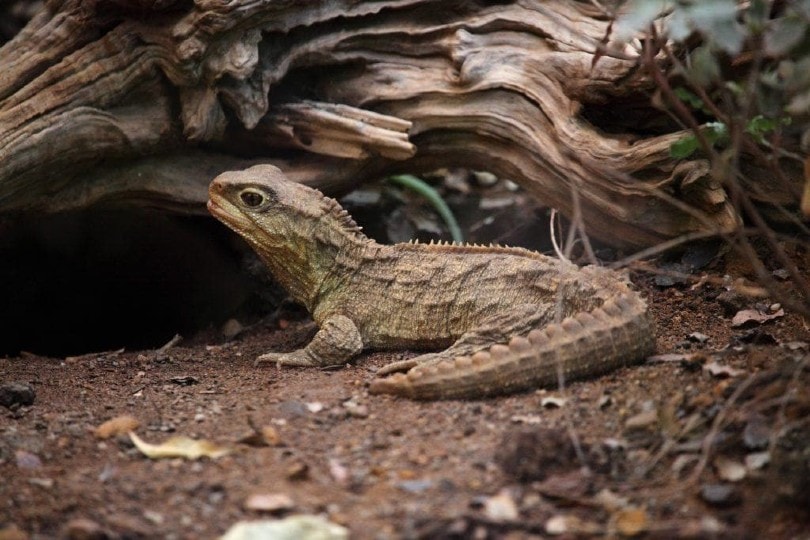
Final Thoughts
If you’re thinking of sharing a leaf of spinach with your beardie, you might want to pick another veggie. If you have to give them some form of sustenance, one leaf of spinach won’t hurt them—but don’t make it a habit. Even though there won’t be any harmful side effects and it’s non-toxic in moderation, it can be detrimental over time because of the high amounts of oxalates naturally found in the plant.
So, while bearded dragons can eat spinach on occasion, you should avoid it if you can. Try to look for other avenues when you’re giving greens to your beardie.
Featured Image Credit: ponce_photography, Pixabay





